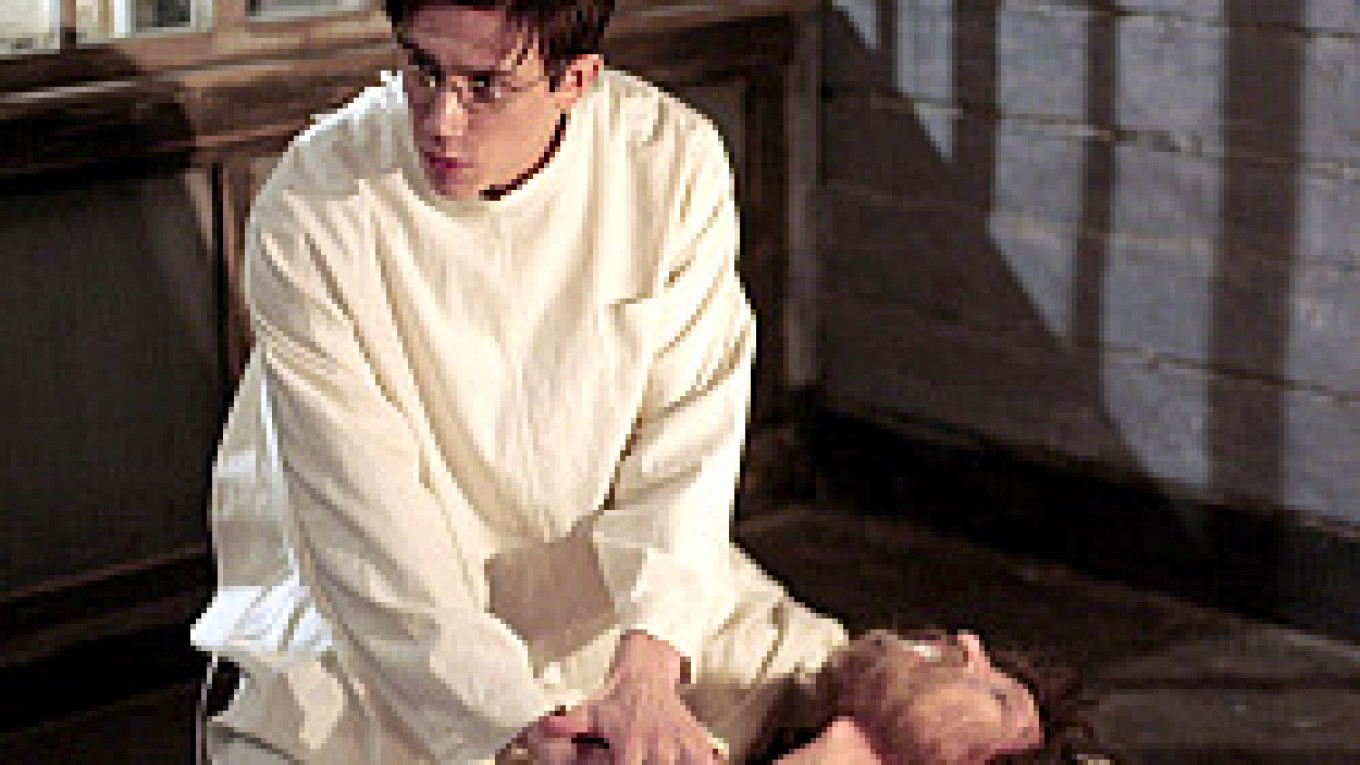"Morphia" also features a contribution from Bodrov, this time in the form of the script, which the actor wrote based on Mikhail Bulgakov's early cycle of stories "Notes of a Young Doctor" as well as the separate story that gives the film its title. The atmosphere of this Balbanov-Bodrov picture, however, is a far cry from the drama and action so elemental to the pair's former efforts.
The best point of reference for "Morphia" in Balabanov's catalog is his best-known historical film, "Of Freaks and People," a rather sordid and cynical film about minor pornographers in pre-Revolution St. Petersburg. The presence of these qualities doesn't ruin that film -- on the contrary, it is a highly accomplished work, shot in predominantly sepia tones -- but they do come accompanied by characters who elicit very little emotional engagement.
In "Morphia," the director has moved on to color, though it's a distinctly bleached kind of vision that makes the result look like an intentional period piece; it's an effect re-enforced by conscious framing of episodes in screen titles that resemble those of the silent-movie era. Perhaps most strikingly, though, "Morphia" distinguishes itself through a level of empathy that has rarely come through in Balabanov's other films.
It's set in 1917 in a provincial settlement where a young doctor, Polyakov (Leonid Bichevin), arrives to take over a clinic. He may be somewhat inexperienced, but he's dedicated to his calling and does his best to minister to his patients, even performing fairly grueling operations such as amputation and tracheotomy. The level of screen gore is in no way exploitative -- we come to understand the growing psychological pressure that Polyakov is under despite a range of professional helpers from a sympathetic assistant to the white-clothed Sisters of Mercy who act as nurses.
The route of the doctor's downward path is obvious from the film's title; given that a chemist is part of the hospital staff, access to the morphine that takes control of his life is initially easy. The addiction then becomes a part of his general collapse, one that comes as a result not only of his character and the surrounding environment but also outside circumstances -- the coming Revolution hovers in the background, and while not overstressed the event does bring changes to the settlement with the arrival of newly appointed local Bolsheviks.
By then, Polyakov is himself a patient, and it would hardly be giving the plot away to say the film does not end happily for him. Bichevin convincingly plays a man in decline, from a nervous beginner in his first job to a nervous wreck whose sense of boundaries between the real and his own imagined world has disappeared. Supporting him is a more than accomplished cast -- most notably Ingeborga Dapkunaite, Andrei Panin and Sergei Garmash -- as well as distinctive and appropriate period music from the popular singer of the era Alexander Vertinsky, whose songs combine an element of decadent cabaret drollery with an underlying melancholy.
Balabanov seems to have found a creative balance, and you feel that he understands addiction. And while the film is not without a hint of mannerism, a kind of theatricality, it's done differently than in "Of Freaks and People" -- in such a way that audiences can actually feel something for the characters.
4.5/5
A Message from The Moscow Times:
Dear readers,
We are facing unprecedented challenges. Russia's Prosecutor General's Office has designated The Moscow Times as an "undesirable" organization, criminalizing our work and putting our staff at risk of prosecution. This follows our earlier unjust labeling as a "foreign agent."
These actions are direct attempts to silence independent journalism in Russia. The authorities claim our work "discredits the decisions of the Russian leadership." We see things differently: we strive to provide accurate, unbiased reporting on Russia.
We, the journalists of The Moscow Times, refuse to be silenced. But to continue our work, we need your help.
Your support, no matter how small, makes a world of difference. If you can, please support us monthly starting from just $2. It's quick to set up, and every contribution makes a significant impact.
By supporting The Moscow Times, you're defending open, independent journalism in the face of repression. Thank you for standing with us.
Remind me later.


